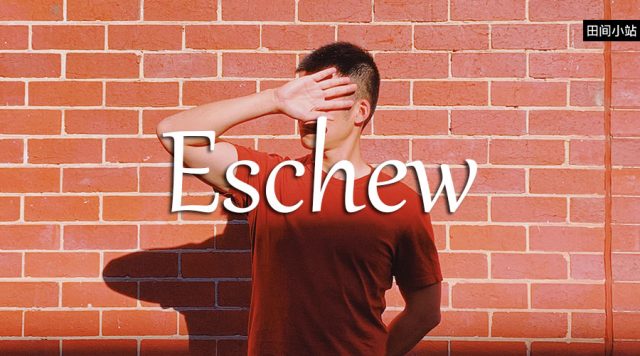
SAT TEM8 GMAT GRE
外刊例句
- As it chases growth, the firm is also doing things it used to eschew as being insufficiently glamorous.
为了追求增长,公司也在从事一些以前因觉得不够光鲜而回避的业务。
——《经济学人》 - It is notable that unlike many of his generation, who eschew the tie when attempting to differentiate themselves from their forebears, he has chosen to drop the jacket.
值得注意的是,和许多同辈人避开领带以试图将自己与上辈人区别开来的做法不同,他选择去掉外套。
——《纽约时报》
基本释义
[verb] deliberately avoid using; abstain from
[动词] 故意避免使用;戒绝
深入解读
别看 eschew 的后半部分是个 chew (咀嚼),但与其并无关系,而是主要源自古法语 eschiver (回避),指“有意地避开、回避、避免”。
在使用时, eschew 通常不用于表示回避人或者某种物理对象,而是多用于表达回避某种思想、概念以及其他无形事物,比如放弃使用暴力(eschew violence)、不喜欢被人关注(eschew publicity)。
名人用例
Eschew the ordinary, disdain the commonplace.
避免平凡,鄙弃平庸。
出自美国动画师、漫画家、编剧家、制作人和动画电影导演查克·琼斯(Chuck Jones,1912年9月21日 – 2002年2月22日)。他执导了许多经典短片动画卡通,其中令人印象最为深刻的作品是《猫和老鼠》(Tom and Jerry)和《兔巴哥》(Bugs Bunny)。
同近义词
- shun: persistently avoid, ignore, or reject (someone or something) through antipathy or caution
- relinquish: voluntarily cease to keep or claim; give up
- spurn: reject with disdain or contempt
